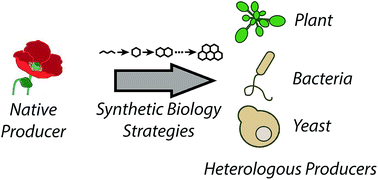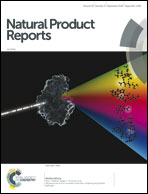Synthetic biology strategies toward heterologous phytochemical production
Abstract
Covering: 2006 to 2018
Phytochemicals are important sources for the discovery and development of agricultural and pharmaceutical compounds, such as pesticides and medicines. However, these compounds are typically present in low abundance in nature, and the biosynthetic pathways for most phytochemicals are not fully elucidated. Heterologous production of phytochemicals in plant, bacterial, and yeast hosts has been pursued as a potential approach to address sourcing issues associated with many valuable phytochemicals, and more recently has been utilized as a tool to aid in the elucidation of plant biosynthetic pathways. Due to the structural complexity of certain phytochemicals and the associated biosynthetic pathways, reconstitution of plant pathways in heterologous hosts can encounter numerous challenges. Synthetic biology approaches have been developed to address these challenges in areas such as precise control over heterologous gene expression, improving functional expression of heterologous enzymes, and modifying central metabolism to increase the supply of precursor compounds into the pathway. These strategies have been applied to advance plant pathway reconstitution and phytochemical production in a wide variety of heterologous hosts. Here, we review synthetic biology strategies that have been recently applied to advance complex phytochemical production in heterologous hosts.

- This article is part of the themed collection: Synthetic Biology and Bioinformatics


 Please wait while we load your content...
Please wait while we load your content...